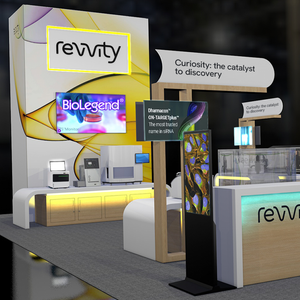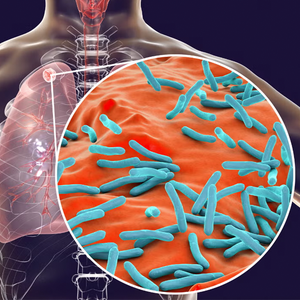
AlphaLISA KRAS G12C / GTP Binding Kit, 500 Assay Points
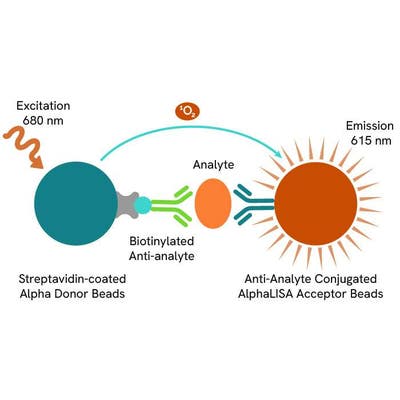

AlphaLISA KRAS G12C / GTP Binding Kit, 500 Assay Points
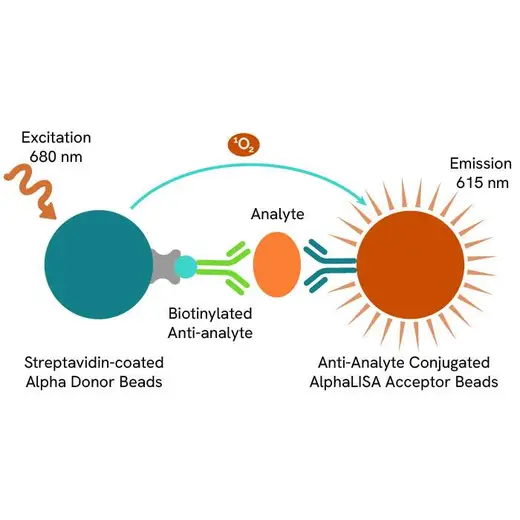


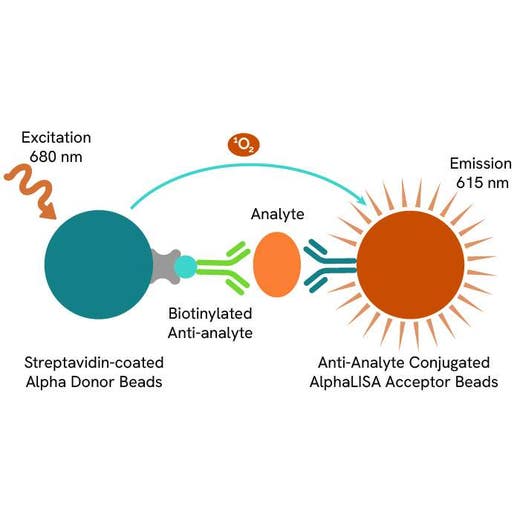


The AlphaLISA™ Human KRAS G12C GTP Binding Kit is designed for the detection of binding activity between human KRAS G12C mutant and GTP, using a fast and simple homogeneous AlphaLISA assay (no wash steps). This assay can be used to identify KRAS G12C/GTP inhibitors.
| Feature | Specification |
|---|---|
| Application | Protein-Protein Interaction |
| Sample Volume | 5 µL |
The AlphaLISA™ Human KRAS G12C GTP Binding Kit is designed for the detection of binding activity between human KRAS G12C mutant and GTP, using a fast and simple homogeneous AlphaLISA assay (no wash steps). This assay can be used to identify KRAS G12C/GTP inhibitors.



AlphaLISA KRAS G12C / GTP Binding Kit, 500 Assay Points



AlphaLISA KRAS G12C / GTP Binding Kit, 500 Assay Points



Product information
Overview
KRAS is a small GTPase implicated in various biological processes, such as cell proliferation, cell survival, and cell metabolism and is a member of the Rat sarcoma (RAS) oncogene family. KRAS induces uncontrolled proliferation and cell metabolism modifications, and it contributes to the Warburg effect in cancer cells. The KRAS G12C mutation is one of the more common KRAS mutations and occurs in non-small cell lung cancers (NSCLC) and colorectal tumors. KRAS G12C is constitutively active, in a persistently GTP-bound state, resulting in overstimulation of the KRAS effector signaling pathways and driving tumor growth. Identifying new KRAS/ GTP competitors with the KRAS G12 GTP assay is a relevant strategy to control biological processes involved in cancer growth, by reducing the KRAS activity as well as the associated pathways. Utilize the KRAS G12C GTP binding kit to discover inhibitors of this KRAS pathway.
Formats
- Our 500 assay point kit allows you to run 500 wells in 96-well or 384-well format, using a 20 µL reaction volume (5 µL of sample).
- Our 5,000 assay point kit allows you to run 5,000 wells in 96-well or 384-well format, using a 20 µL reaction volume (5 µL of sample).
Feature:
- No-wash steps, no separation steps
- ELISA alternative technology
- Sensitive detection
- Small sample volume
AlphaLISA technology allows the detection of molecules of interest in a no-wash, highly sensitive, quantitative assay. In an AlphaLISA assay, a biotinylated anti-analyte antibody binds to the Streptavidin-coated Donor beads while another anti-analyte antibody is conjugated to AlphaLISA Acceptor beads. In the presence of the analyte, the beads come into close proximity. The excitation of the Donor beads causes the release of singlet oxygen molecules that triggers a cascade of energy transfer in the Acceptor beads, resulting in a sharp peak of light emission at 615 nm.
Specifications
| Application |
Protein-Protein Interaction
|
|---|---|
| Automation Compatible |
Yes
|
| Brand |
AlphaLISA
|
| Detection Modality |
Alpha
|
| Product Group |
Kit
|
| Sample Volume |
5 µL
|
| Shipping Conditions |
Shipped in Blue Ice
|
| Target |
KRAS
|
| Target Class |
Binding Assay
|
| Technology |
Alpha
|
| Therapeutic Area |
Oncology
|
| Unit Size |
500 Assay Points
|
Video gallery

AlphaLISA KRAS G12C / GTP Binding Kit, 500 Assay Points

AlphaLISA KRAS G12C / GTP Binding Kit, 500 Assay Points

Resources
Are you looking for resources, click on the resource type to explore further.
Get the latest insights on KRAS and see how it has switched from being an undruggable to a druggable cancer target.
In this white...
SDS, COAs, Manuals and more
Are you looking for technical documents related to the product? We have categorized them in dedicated sections below. Explore now.


How can we help you?
We are here to answer your questions.





